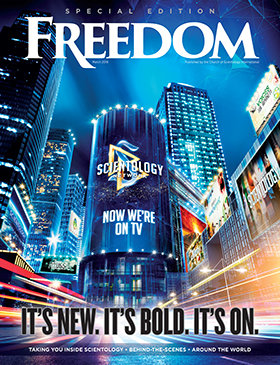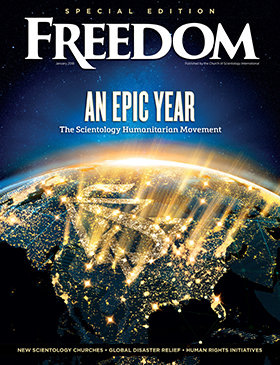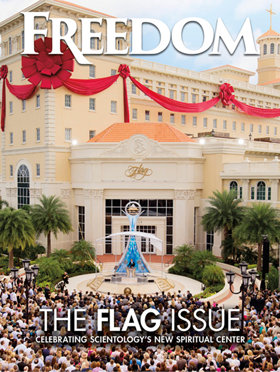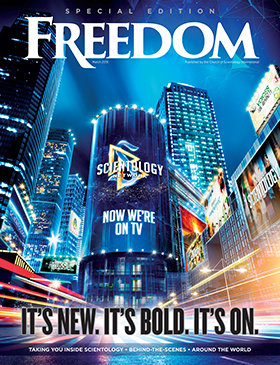
Some things are so obvious you don’t have to ask. No one would question a Vermontian’s decision to spend winter in Clearwater. Or why a Canadian or a landlocked Nebraskan holidays on Clearwater Beach.
But ask a local why they live in Clearwater and the answer likely will be much more varied. The area’s unique and enticing features began drawing people long before the era of modern tourism and for all the same reasons then as now. Once they arrive, many “visitors” never leave.
When a Spaniard by the name of Panfilo de Narvaez visited in search of gold in 1528, a mere 491 years ago, he learned that the Native Americans who lived in the area called it “Pocotopaug.” The name stuck, though we now use the literal English translation: Clearwater.
What happened for the next 350 years is not so clear, but not long after Florida became a territory in 1822, the first promise of serious settlement began with the arrival of the Orange Belt Railroad—not thanks to renowned railroad tycoon Henry B. Plant who bought the railroad eight years later, but to the less known, though equally deserving of recognition, Russian immigrant Peter Demens. The railroad’s terminus was in the area now named Gulfport. The city of St. Petersburg was named after Demens’ native city in Russia.
The settlers brought by the railroad included the Orange Belt work crews, many of them African-American laborers who brought their own cultural influences to the area.
The railroad, coupled with the healthy climate, also marked the first major boost to the area’s reputation as a tourist destination.
The booms and busts of the next hundred years brought settlers from every corner of the Earth, from all walks of life and of every color, race and religious persuasion.
The names of many early pioneers remain on local landmarks—Coachman Park, Morton Plant Hospital, even Clearwater’s Drew Street, named after local farmer John Drew. Before Tampa airport became TIA in the 1950s, it was named Drew Field Municipal Airport, and to get there from Clearwater, you took Drew Street. Downtown Clearwater’s Fort Harrison Hotel is named after an actual U.S. Army fort constructed south of Clearwater’s current downtown in 1841 and named after a military officer who later became ninth U.S. president, William Henry Harrison.
Whether they are descendants of Panfilo de Narvaez, progeny of Peter Demens’ railroad, sun-seekers who never went home or more recent arrivals fleeing natural disaster or man-made trauma in their homelands, Clearwater’s people have diverse origins, but they have one thing in common: They all now call Clearwater home.
Featured in this magazine are some who share all the same reasons for thinking of Clearwater when they say “home is where the heart is.” But they also have one other thing in common: They are all Scientologists. And they, their parents or their grandparents, came to Clearwater to be near their Church’s international spiritual headquarters.
There are Churches of Scientology in cities around the world: New York; Boston; Los Angeles; Washington, D.C.; London, England; Paris, France; Moscow, Russia; Tokyo, Japan; Sydney, Australia; Bogotá, Colombia—the list goes on—each with its own congregation. But Clearwater is different. Flag is the religion’s international religious retreat and every Scientologist from every corner of the globe aspires to come to Clearwater when ready to participate in the advanced religious services Flag provides. That means in the 44 years since Flag was established, literally hundreds of thousands of Scientologists have visited. Most return home after they complete their services, but many stay to be close to Flag and make Clearwater their home.
Featured in this magazine are some who share all the same reasons for thinking of Clearwater when they say “home is where the heart is.” But they also have one other thing in common: They are all Scientologists.
In the following pages you will meet the steel manufacturing giant whose 100 local employees represent a typical Clearwater cross section, the graphic design company that employs over 250 more and the cybersecurity guru whose award-winning downtown company may have reached 1,000 employees by the time you read this.
You will also meet artists, inventors and entrepreneurs. You will recognize many faces: the 22-time Grammy Award-winning jazz great who told the audience at Clearwater’s Jazz Holiday what it meant to him to be playing at home, or the exuberant brothers with a huge online audience for their zany sneaker-oriented videos, or perhaps the realtor who helped you find a home in Clearwater.
Or maybe your doctor, dentist or even your next-door neighbor.
They are all remarkable stories. Equally remarkable is that no mention of any of them has ever appeared in the pages of the local news rag. But what’s new? The Tampa Bay Times has an agenda. And it is not just Scientology. Scientologists are far from alone in recognizing the Times no longer reports unbiased news. Whatever undeserved reputation the paper may have had a generation ago, it is now universally despised—not only for being untrustworthy but because the bias on every topic is so blatant.
Which is why we, and the Scientologists introduced in the following pages, thought it was time we shared our reasons for calling Clearwater home.
It is a beautiful city, blessed with natural resources and teeming with potential, tainted only by the incessant divisiveness fostered by the Times.
In 2014, after decades of frustration and numerous failed efforts to revitalize downtown, city officials retained the help of the Urban Land Institute (ULI), the oldest and largest network of cross-disciplinary real estate and land use experts in the world.
ULI responded by dispatching a six-person advisory panel composed of top experts in urban design and all aspects of real estate planning and development. The panel came to Clearwater to observe, talk with city leaders and citizens from all over Clearwater and to conduct an extensive review of past studies to find out why they failed.
Their final report includes many recommendations, but there is one upon which they said everything else depends. Success will depend on partnerships and trust building. Clearwater’s different geographical, social and cultural factions must work together. But, while making clear they were addressing all of Clearwater, the panel made an important distinction:
“Specifically, this means the City of Clearwater and the Church of Scientology. They are the two largest landowners in the study area. … These two organizations must become partners in the future of the city. If they cannot, no one else will.”
The full story of ULI’s recommendations, and the Times’ efforts to undermine them, are included in this magazine, but there is an obvious reason why the above statement—the key to the ULI report—has not once been quoted in the Times. It is the same reason none of the stories in this or any other edition of Freedom have ever appeared in the Times. The newspaper’s fanatical prejudice outweighs any remnants of care they ever had for Clearwater and its citizens. Despite countless Times articles and editorials “about” Scientology, the newspaper has never once attempted to actually tell the true story. It is an endless effort to redefine Scientologists into whatever fake stereotype the newspaper’s propagandists create. Reading the Times, you wouldn’t even know they are your neighbor next door. The Times would have you believe the Church is just a local institution.
This is also why you have never seen mention in the Times of the entire one-hour episode on television that takes you inside Flag. With propaganda-by-omission, the Times obsessively avoids anything positive about the Church, whose home is in Clearwater, such as:
- According to a team of Florida State University economists, Flag’s economic impact on Clearwater and the surrounding region in 2013 was $916,692,624—essentially a billion dollars. The Church was responsible for creating 7,514 local jobs. Those numbers have increased significantly since 2013.
- In all the Times articles about the Church of Scientology in Clearwater, it is never mentioned that the Church is also downtown’s largest taxpayer—contributing $3 million per year in property and tourist taxes.
- For over a quarter of a century the Clearwater Community Volunteers (CCV) of the Church of Scientology have worked to bring joy to the children of our community. Each year they build Winter Wonderland, attended last year by more than 11,500 children and families, while also raising over 50 tons of food and toys for children and families in need. CCV’s Ginormous Easter Egg Hunt, in its 27th year, attracted nearly 8,000 children and families.
- Sixteen years ago, the Church began a program to create new Church organizations designed for expansion and perfectly configured to deliver all Scientology services exactly as described by Scientology Founder L. Ron Hubbard. Seventy new Churches have opened in all corners of the globe in the last 16 years, totaling over 4 million square feet.
- In January 2019, more than 4,000 guests attended the grand opening of the Church of Scientology’s newest Advanced Organization. Located in Johannesburg, South Africa, the facility stands on 22 acres and serves as the spiritual headquarters for Scientologists throughout the continent. The Johannesburg ward councilor for the district presented a proclamation, welcoming the Church to the city.
The Church hosted an African summit, attended by guests from 14 African royal houses, focused on Scientology-sponsored humanitarian programs. The summit resulted in a pledge for unity for all nations and kingdoms across Africa to partner on solutions to social issues.
Hundreds of leaders from other faiths and denominations attended multiple interfaith conferences hosted by the Church of Scientology.
More than 3,000 police and community forum police in Gauteng—the province that contains both the provincial capital of South Africa, Johannesburg, and the administrative capital, Pretoria—have been trained on the drug education program sponsored by the Church. They reported a 18 percent drop in drug-related crime in downtown Johannesburg.
Throughout this special edition of Freedom you will see advertisements on the programming available on Scientology TV. We invite you to tune in and experience some good news. Enjoy.











































































